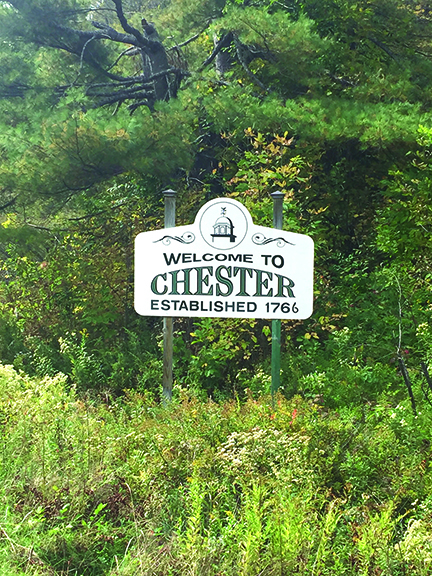CHESTER, Vt. – At the first of two regular monthly meetings on June 5, 2024, the Chester Selectboard reviewed two draft ordinances – the newly proposed nuisance ordinance, and the long-discussed short-term rental (STR) ordinance.
Prior to these discussions, town manager Julie Hance reported to the board that the town had been awarded a $200,000 Downtown Transportation Grant to electrify and improve the Chester Green. Hance noted that these changes would not greatly alter the Green, but would comprise primarily of “enhancements and traffic calming measures.”

Moving into their discussion of the nuisance ordinance, the board began review of a draft ordinance based on one provided by the Vermont League of Cities and Towns. While discussing the ordinance’s statement of purpose, board member Tim Roper raised an issue which became the board’s central focus of the discussion: the differing needs of densely populated village districts as opposed to those of the more rural districts.
Roper expressed concern with the wording of the purpose statement, particularly a section which referred to animals with an “ability to produce noise detrimental to the enjoyment of life, property, and the conduct of business, and the risk they pose of transmitting communicable diseases…when not properly confined.”
“I struggle with that statement,” Roper said, “because farm animals are noisy.” Roper raised the issue of a rooster crowing, and wondered if this would be grounds for a neighbor to lodge a complaint, particularly against a farm in a rural area of town.
Hance responded that the issue hinges on the phrase “when not properly confined,” particularly with relation to the transmission of disease. Board member Arianna Knapp noted that the “purpose statement is aspirational,” and not actually an enforceable section of the document. The board then moved forward to discuss more relevant segments of the ordinance, but the central theme of village versus rural districts continued to be a sticking point.
Impoundment of offending animals also caused some discussion. Hance explained that this would need to be handled on a “case-by-case” basis, as what to do with impounded animals and who, if anyone, would be willing to take them, would differ based on the kind of animals in question, their health, and a number of other factors.
The board did clarify that this ordinance was meant to refer to domesticated livestock animals, and not pets which reside primarily in the home.
Knapp and Hance agreed to compare notes after the meeting and make relevant changes to the document, for future discussion by the board.
The board then moved on to discuss their pending STR ordinance, which had been marked up similarly to the nuisance ordinance at the previous meeting, and the changes reviewed by town attorney Jim Carroll. Some minor changes were made, particularly with regard to language involving the timeline for payment of penalties. The original document stated only that penalties must be paid in a “timely” manner. The board felt that a definitive timespan would be preferable, settling on 30 days.
Board Chair Arne Jonynas was hopeful that a final copy of the document would be put before the board to be signed at the next meeting, which will be held on Wednesday, June 19, at 6:30 p.m., at the Chester Town Hall.